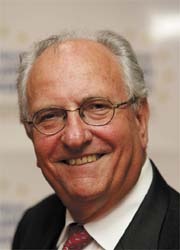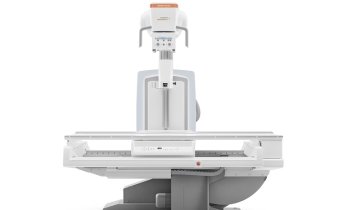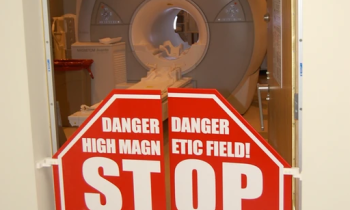EHFG celebrates 10th anniversary
In 1998, during Austria's first EU presidency, Professor Günther Leiner founded the European Health Forum Gastein (EHFG). From 3-6 October this year, the Forum will celebrate its 10th anniversary. Our Austria correspondent Hans-Christian Pruszinsky asked Dr Leiner about the value and role of this organisation in Europe today.

Looking back on the past decade, Dr Leiner is particularly happy that the EHFG has established a network and a forum where key stakeholders – from politics, industry, science and NGOs – meet to informally exchange ideas. ‘Apart from high level scientific discussion in the workshops and forums, we have created a communication platform for experts and decision makers in many different areas. This enables us to explore and discuss major EU and WHO health policy projects. Several of our suggestions have been debated in the European Parliament’ (EP), he pointed out.
Have his original goals been reached? ‘My vision was to discuss European health policy issues on a supra-regional level and to integrate the four stakeholder groups I’ve mentioned. To a large extent, this goal has been reached. However, we didn’t manage to the extent envisaged – the use of our discussion results as the decision basis by national parliaments and by the EU Parliament – albeit this is not quantifiable. Our results were presented to all parliaments and relevant health policy committees. It remains open as to how far they contributed to the actual implementation of health policies.’
Of what is he particularly proud?
‘The diversity of the participants has developed significantly, not only in terms of internationalisation – see EU enlargement – but also in terms of the interests of the participating decision makers. Health policy makers from all kinds of national healthcare systems and with a wide variety of foci, representatives from large medical technology and pharmaceutical corporations, representatives of the social and health insurers, both private and public, numerous NGOs, patient lobby groups, the media, decision makers in clinical, care and administrative functions, representatives of private and public hospitals and other medical institutions – today, they all meet in Gastein.’
Is such a diversity of interests and demands manageable? ‘Health policy is still handled nationally. I believe there are only a few important health policy issues that need discussion Europe-wide, which means they are definable and manageable.
‘Obviously, the interests of the stakeholders – nurses, patients, industry, politics and administration – can differ widely. Also, groups such as the pharmaceutical and medical technology industries might have opposing views. But in the EHFG framework, time and again we witness that the different players forge issue-specific cross-sectoral coalitions. I guess most lobby groups have understood that they can reach their goals by co-operating with others, because successful lobbying for specific and particular interests has become extremely difficult. This is true for many issues, for example long-term care for the chronically ill, or patient safety, and issues regarding healthcare as an economic and growth factor.’
Might the range of issues have to be limited to enable their deeper discussion? ‘We plan to offer separate scientific symposia for the different stakeholders, where topics that had been on the EHFG agenda and are particularly relevant for the individual groups can be discussed in more detail. We are also launching a ‘Gastein Group’ of members for the health committee of the EP and other MEPs, to strengthen results of our Forum at a political level.’
Since 2000, annual Gastein Declarations have been presented to the European Parliament. Have they affected EU health policy? ‘One should look at the Gastein event and the Declaration as a unit. The Declaration is a summary of key results and recommendations emerging from the event. Political activities do not begin with the Declaration – they begin with the informal meeting of the decision makers in Gastein. There, we ‘sow the seed’. We have often seen the Declaration used as a discussion aid and guidance. I’m convinced that many of our ideas made their way to MEPs via our papers, providing scientific backup for their policy initiatives.
‘I’d also like to stress that neither event nor Declaration solely address the EU level; they also clearly target national decision makers. From the beginning we intend feedback effects between the national and the EU level, and between national levels. Due to their diversity, European healthcare systems are ideally suited to serve as incubators for new ideas. That’s one of the ideas behind the European Health Forum Award, which we’ll present for the first time this year.’
What concrete successes has the Forum achieved? ‘The creation of a consultation mechanism regarding patient mobility is an example. Obviously, this suggestion was included in the Declaration. Also, the European Commission is about to adopt the first concrete suggestions to create a community framework for healthcare services. If you look at this process and the Declarations you’ll realise that the EHFG has prompted many concrete impulses through the years.’
Given the outstanding diversity of forums and workshops this year, what are the burning issues? ‘The focus will be on ageing and chronic diseases, and healthy environments.’
Where do you expect consensus solutions? ‘The foundation of the Gastein Group in the European Parliament will serve as the basis for a co-ordinated implementation of our recommendations.’
The EHFG is a major tourism factor for the Gastein valley. Do statistics show its economic benefits here? ‘The Gastein valley has a century-long tradition as a health destination, so the EHFG found the ideal venue. The Gasteiner Kur (Gastein spa treatment) combines three local elements: thermal water, steam bath and the ‘healing galleries’. The combined use of radon and warmth soothes pain and contributes to post-trauma rehabilitation. Our valley also offers a wide variety of sports – summer and winter.
‘During the three-day event held in October, about 2,000 participants stay here – in off-season Gastein that’s significant. In addition, over 60% of EHFG contracts are conducted with local companies. The annual revenue generated by the EHFG in the Gastein region is around ?500,000.
‘A further significant factor is the promotional and advertising effect of the EHFG. Many participants return for a vacation. Our event elevates the image of the entire valley and strengthens the link between tourism and health – which is so important for Gastein.
‘Between 1998 and 2006, we welcomed 4,000 participants at EHFG, and the number is increasing.’
On the EHFG’s 10th anniversary, as its spiritus rector and president, what’s your wish? ‘That health policy issues that are discussed with earnestness and commitment by important personalities, and at a very sophisticated level, will be acknowledged, furthered and implemented by politicians.
‘I’d like to also thank European Hospital for many years of fruitful co-operation, which I look forward to continuing in the future.’
31.08.2007









